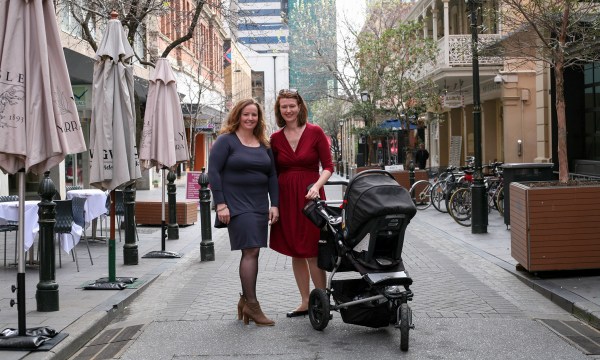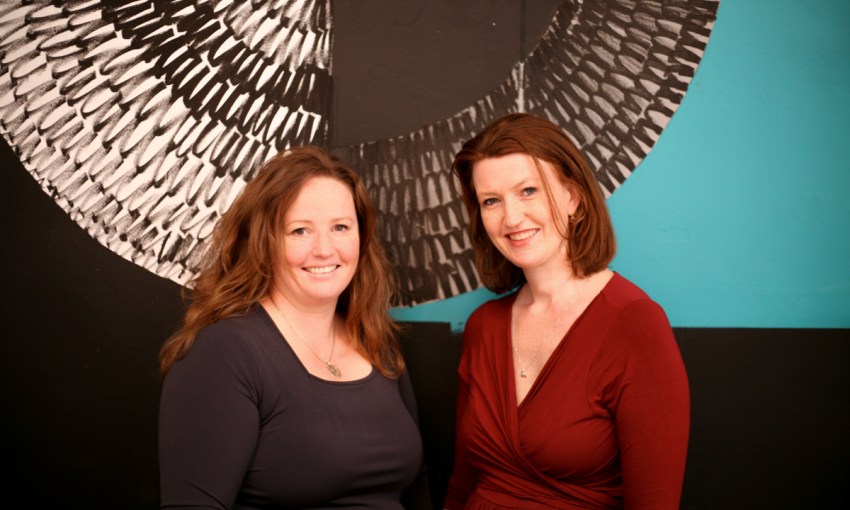Ahead of running the second citizens' jury on South Australia's nuclear involvement, the two locals behind Democracy Co talk about how a personal revelation became a thriving international business.
Democracy Co takes a new style of government to the world
Emma Lawson and Emily Jenke have been involved with the machinations of government for a long time.
Before the pair formed Democracy Co, Emily was running a business that worked strategically with clients – many of which were government-affiliated. Meanwhile, Emma was working across ministerial offices and the public service. It was while employed in the latter that she had a revelation.
“One day my boss asked me to do some community engagement – and I said I don’t do people, I do policy,” says Emma.
“But I worked it out… and I sat there and listened to people and… It was an epiphany. I was blown away by how smart people were and how much we could learn from talking to people. And I thought, we need to change the way we’re working, because it’s not right.”
That enthusiasm for doing things differently came to the fore when Emma had her first child and decided working in her own business might afford her more flexibility.
In 2015, she and Emily joined together to create Democracy Co – a new business, but one which built on the work Emily had already been doing in her consultancy.
Now, that joint venture is at the heart of the SA Government’s push to engage differently with the public, and is also beginning to sign international contracts – most recently working with Singapore’s Government.

Under the Democracy Co banner, Emily and Emma run citizens’ juries and other forms of public engagement, and deliver training and policy advice. While their work aims high, pitching for the lofty goal of reforming democracy to make it more engaging and functional, they’re realistic about what they’re likely to achieve.
“Whilst that’s our world view, that’s our vision – it’s a little step thing,” says Emma. “We’re not thinking we’ll change the world in 90 days. But we’re conscious of the fact that by showing and demonstrating little things and changes, people pick up on it and they see how they can use it.”
Their work to date – which has incorporated several citizens’ juries for the SA Government, including an initial jury considering the nuclear fuel cycle issue – addresses what they see as an underlying problem with the way democratic government practices have evolved.
“The whole problem with Government is they think they have to do it all,” says Emily. “They think they have to solve this problem and [for example] transform health and fix it completely.
“But then you have the community asking why they’re investing in hospitals, when they could be investing in keeping people well and keeping them out of hospitals.
“So our whole solution is based on everyone coming in at the start and saying, ‘What is the problem we need to address? And then whose role is it to do this?’.”
While Democracy Co is certainly not the only company in the world or Australia offering to manage and run things like citizens’ juries, there are some unique aspects to what Emily and Emma do and its those attributes that have attracted global interest.
“A lot of other companies will do recruitment [of citizen jurors] or facilitation [of the juries] but not both,” says Emma.
“And we do training too, and that’s why the Singapore thing came off, because we were the only place in the world that offered training and recruitment and facilitation – we could do the whole thing. We’re the only place that does that anywhere.”
While their immediate future holds the prospect of the second South Australia citizens’ jury on nuclear involvement, which begins October 8, Emma and Emily’s longer term plans are regional.
Somewhat ironically, they feel the Democracy Co model can often be most effective when utilised by non-democratic governments.
“What we’re really interested in is South-East Asia, which is an amazing opportunity because a lot of those governments don’t have the pre-determined ideas of democracy that we have,” says Emma.
“They want to show their people that they are listening and they are engaging.”
And working out how to do that is what Emily and Emma do best.




